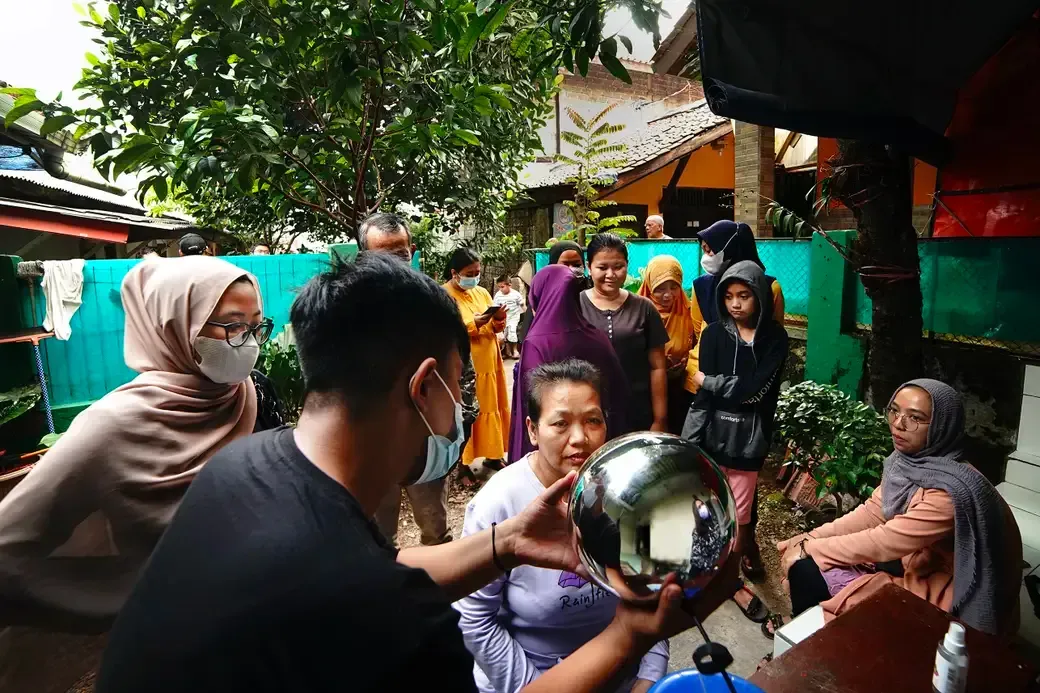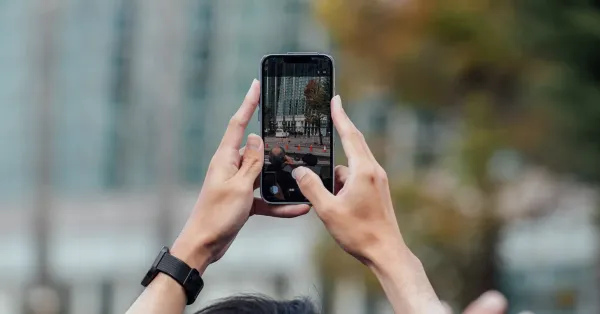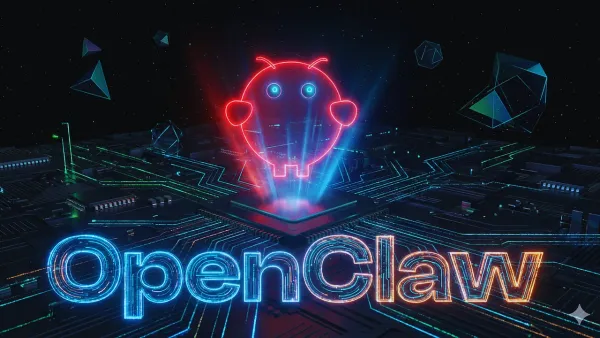Worldcoin and the AI-Funded Future of Universal Basic Income

GM,
AI Is Already Powerful—and Will Only Get Stronger. There are countless articles and discussions about AI flooding the internet. Bill Gates once said GPT is the most revolutionary technology since the Graphical User Interface (GUI). In the past, people had to learn how to input commands like C:> into computers. Later, we only needed to click a mouse. Today, we click the mouse—but in the future, we’ll just speak “spells” (prompts) to AI.
But as AI becomes all-powerful, how should humanity respond? The world remains divided. Some believe AI is merely a tool that people need to learn how to control. The unspoken message is: “If you don’t learn to use AI, you’ll be left behind (by me).” That may be true—but it focuses too much on competition between people.
Others argue that technology will widen the wealth gap and that policy is needed to redistribute resources. OpenAI CEO Sam Altman holds this view. In 2021, he co-founded the Worldcoin project, believing that in the future, humans should become shareholders of society—able to enjoy Universal Basic Income (UBI) without having to work. This income wouldn’t come from government-printed money, but from the hard labor of AI.
The vision may sound grand—even unrealistic. But after the recent explosion in AI capabilities, few dare to underestimate how fast it’s evolving. This article explores the background of Worldcoin and the issues it has faced in its attempt at implementation.
Let AI Work for You
In 1965, Intel co-founder Gordon Moore proposed what became known as Moore’s Law—that semiconductor performance would double roughly every 18 months. It wasn’t a scientific law but an educated guess, which turned out to be remarkably accurate. For decades, the tech industry followed this trajectory. Our phones and computers became exponentially more powerful, without growing in size. Tech companies prospered, becoming some of the richest entities in the world.
In 2021, observing AI’s growing potential, Sam Altman extended this logic in an article titled Moore’s Law for Everything. His prediction was just as bold:
“Working at OpenAI reminds me daily that societal and economic change is happening faster than most people expect. Self-learning software will replace many human jobs, shifting power from labor to capital. If policy doesn’t adapt, most people will end up worse off… This revolution is unstoppable. As intelligent machines build even smarter ones, the recursive loop of innovation will only accelerate.”
We’re still in the phase where humans build machines, so people ask how OpenAI trained powerful models like GPT-4. But Altman is looking further ahead—to a world where machines build machines, replacing most humans, with only a few left in control. Wealth will concentrate, and many of us may become unemployed. How will we support our families then?
Not long ago, such worries seemed alarmist. Today, they’ve become a major source of anxiety about AI. Altman believes we need to change economic incentives: let AI and robots serve as the labor force, while people become shareholders who benefit from the wealth AI creates. In essence, that’s Universal Basic Income:
“Historically, inequality was addressed through progressive income taxation, but this hasn’t worked well. In the future, it will be even less effective. People will still work—but many jobs won’t create significant economic value. Once AI can produce most goods and services, people will have more time to care for others, appreciate art, or engage in public service.”
“So we should shift taxation from labor to capital… The best way to reform capitalism is to let everyone benefit from it as shareholders. This isn’t a new idea—but as AI creates more wealth, it becomes more feasible.”
Technology constantly redefines work. Once, work meant commuting. Today, chatting online and making memes is a day job for social media managers—and a powerful one. We still think that caring for others or engaging in the arts isn’t “real work,” but someday these human-centric roles may become full-time jobs—things humans still do better than AI.
No one competes with planes on speed, or with computers on math. Altman, ahead of most, saw AI’s threat. He believes governments must intervene and redistribute wealth to avoid inequality. As AI productivity grows, governments can tax that value and distribute it to citizens. He even predicted that within 10 years, AI-generated output could fund a $13,500 annual UBI for every adult in the U.S.
UBI may sound like a “free lunch,” but small-scale pilots have already happened in Finland and Spain. Worldcoin offers another approach: let people scan their irises to receive crypto income.
Worldcoin
Though Altman can't make policy or control national budgets, he can issue Worldcoin—a cryptocurrency distributed via blockchain—to implement UBI. But this ambitious project has met a messy and even tragic reality. According to CNBC and TechCrunch:
“It sounds like something out of a sci-fi movie—a metallic orb scans your eyes and gives you cryptocurrency. That’s Worldcoin, co-founded by Sam Altman. They promise free crypto to those who verify their identity via iris scan. Worldcoin has raised $125 million from investors like Andreessen Horowitz, Coinbase, and Tiger Global, and is valued at $1 billion.”
Worldcoin attempts to solve the two biggest UBI challenges: identity and money. First, it needs to verify who people are; second, it needs to distribute funds.
In Taiwan, everyone has an ID number. But Worldcoin faces a global population of 8 billion—many of whom have no official ID. So they built a device: a metallic orb that scans your iris to create a unique “IrisHash” ID stored in Worldcoin’s database or blockchain. As long as the ID is unique, users receive $20 worth of WLD tokens and a T-shirt.

People’s biggest question: What can I do with WLD? For now, nothing.
WLD is, bluntly, a token created from thin air. It has supply but no demand. To make WLD spendable, Worldcoin would need reserves (like a stablecoin issuer) or survive long enough to gain trust—like Bitcoin did post-Pizza Day.
At first glance, Worldcoin sounds like a scam. But it's not failing. In 2022, operators helped collect 500,000 iris scans globally. Still, backlash followed. Many felt misled, even sending angry emails to ask, “It’s been three months—what have you done with our eyes?”
MIT Technology Review reported:
“Most people participated out of curiosity—because the Orb operator looked trustworthy, or was a friend or classmate. Some hoped it’d be the next Bitcoin. Others just wanted free lunch money. Though many suspected a scam, few passed up the opportunity—just in case.”
Imagine someone holding a shiny orb outside Taipei Main Station, offering mystery crypto in exchange for an eye scan. Would you step forward—or call the cops? Worldcoin knows handing out valueless coins looks shady—but there’s a reason:
“To ensure global participation in the digital economy and benefit from decentralized networks, the first step is getting as many people as possible using the same currency. The more holders, the more utility. But you can’t convince new users to adopt an unused currency… So we designed economic incentives, giving most tokens to new users as an onboarding reward.”
This mimics Bitcoin’s early playbook.
In 2010, Bitcoin developer Gavin Andresen created Free Bitcoins, a site that handed out 5 BTC per visit. Back then, those 5 BTC were almost worthless—no one imagined buying lunch with them someday. And the people claiming BTC then weren’t worried about feeding themselves.
WLD, too, is currently worthless—but unlike early Bitcoin, its users are mostly hoping to cash out quickly. That alone means WLD probably won’t become the next Bitcoin.
In fact, the Bitcoin window may have already closed. If Worldcoin truly wants to implement UBI, it would make more sense to give away BTC or fiat—but those cost money or labor to earn.
Originally, Worldcoin aimed to solve both identity and money. But if AI becomes the primary labor force, earning money through productivity, then Worldcoin only needs to do identity—the Orb. WLD could transition into a governance token or exchange voucher for other currencies.
Planning for the Future
Back to reality: whether it’s AI earning money or Worldcoin distributing it, these ideas still feel far-off for most people in Taiwan in 2023. But before 2023, few imagined AI replacing their jobs in their lifetime.
Anxiety comes from lack of choice. Worldcoin is immature—the Orb frequently fails, and privacy concerns abound. But the project’s current value isn’t practical—it’s conceptual: it gives us a glimpse of a new relationship with AI.
Someday, we’ll stop worrying about whether AI will replace us—or which jobs are safest—because everyone will be replaced. AI will only get stronger, but also more accessible. As it boosts productivity, we need projects like Worldcoin to reshape the structure of production.
The ideal outcome isn’t man vs. machine, or human vs. human—but people using machines to work for us.




